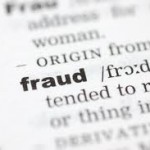 The parol evidence rule protects the integrity of written contracts by making their terms the exclusive evidence of the parties’ agreement, except if there is fraud. In Bank of America v. Pendergrass (1935) 4 Cal.2d 258, 263, [48 P.2d 659, 661], the California Supreme Court adopted a limitation on the fraud exception: evidence offered to prove fraud must tend to establish some independent fact or representation, some fraud in the procurement of the instrument or some breach of confidence concerning its use, and not a promise directly at variance with the promise of the writing. Now, the California Supreme Court says “Pendergrass failed to account for the fundamental principle that fraud undermines the essential validity of the parties’ agreement. When fraud is proven, it cannot be maintained that the parties freely entered into an agreement reflecting a meeting of the minds.” The court stressed “that the intent element of promissory fraud entails more than proof of an unkept promise or mere failure of performance,” and concluded: “. . . Pendergrass was ill-considered, and should be overruled.” Riverisland Cold Storage, Inc. v. Fresno-Madera Production Credit Association (Cal. Sup. Ct.; January 14, 2013) 55 Cal.4th 1169.
The parol evidence rule protects the integrity of written contracts by making their terms the exclusive evidence of the parties’ agreement, except if there is fraud. In Bank of America v. Pendergrass (1935) 4 Cal.2d 258, 263, [48 P.2d 659, 661], the California Supreme Court adopted a limitation on the fraud exception: evidence offered to prove fraud must tend to establish some independent fact or representation, some fraud in the procurement of the instrument or some breach of confidence concerning its use, and not a promise directly at variance with the promise of the writing. Now, the California Supreme Court says “Pendergrass failed to account for the fundamental principle that fraud undermines the essential validity of the parties’ agreement. When fraud is proven, it cannot be maintained that the parties freely entered into an agreement reflecting a meeting of the minds.” The court stressed “that the intent element of promissory fraud entails more than proof of an unkept promise or mere failure of performance,” and concluded: “. . . Pendergrass was ill-considered, and should be overruled.” Riverisland Cold Storage, Inc. v. Fresno-Madera Production Credit Association (Cal. Sup. Ct.; January 14, 2013) 55 Cal.4th 1169.
Leave a Reply
You must be logged in to post a comment.